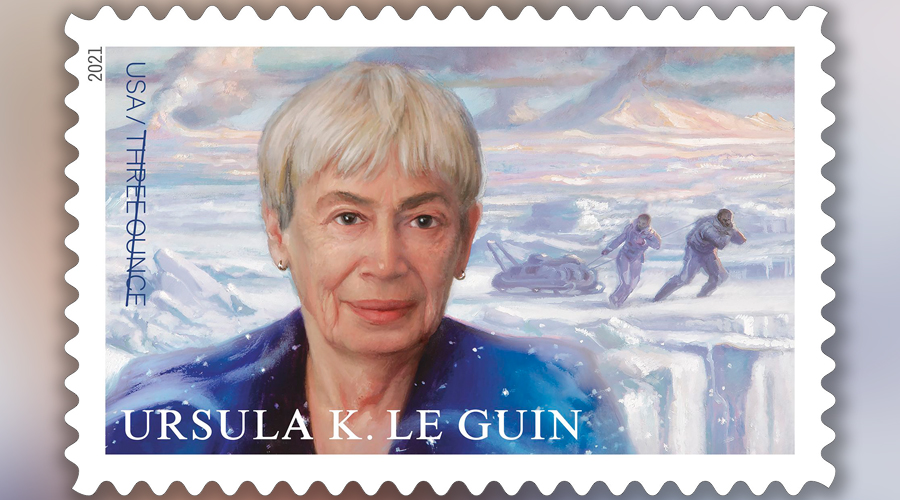The Postal Service released a stamp earlier this year to honor Ursula K. Le Guin. Here are four facts about the author, the 33rd honoree in the Literary Arts series.
1. Le Guin’s work was shaped by her many interests. Born in Berkeley, CA, in 1929, Ursula Kroeber Le Guin was deeply interested in Native American cultures from a young age — a fascination that would inform her later work. After graduating from Radcliffe College in 1951 and earning a master’s degree from Columbia University in 1952, she began exploring the potential of science fiction and fantasy in the early 1960s, publishing her first novel, “Rocannon’s World,” in 1966. The novel intertwined elements of fantasy and science fiction — and inspired two sequels — while establishing a setting for many later novels and stories.
2. Her writings were ahead of the times. In 1969, Le Guin published “The Left Hand of Darkness,” a novel about Genly Ai, an Earth diplomat who journeys to a wintry planet where two nations teeter on the brink of war — and where the inhabitants have no fixed gender most of the time. The book, which won the Hugo and Nebula awards in science fiction and fantasy, broke new ground and was often praised as the novel that permanently raised the literary expectations for science fiction.
3. Le Guin’s focus wasn’t singular. In addition to the novels and fiction that won her dozens of literary awards and legions of avid readers, Le Guin published volumes of poetry, wrote realistic stories about life in a small Oregon town and started a blog at age 81 that became the 2017 essay collection, “No Time to Spare: Thinking About What Matters.” She also published a translation of the classical Chinese philosophical and religious text, Tao Te Ching, the result of 40 years of Taoist reading and reflection.
4. She was a pathbreaker, too. Le Guin, who died in 2018, is credited with championing the literary and artistic value of science fiction and fantasy, as well as encouraging more women to write and read fiction in both genres. She also inspired many readers and writers of color by placing nonwhite characters at the center of her work and by tackling issues of racial injustice and colonialism in nuanced ways.
